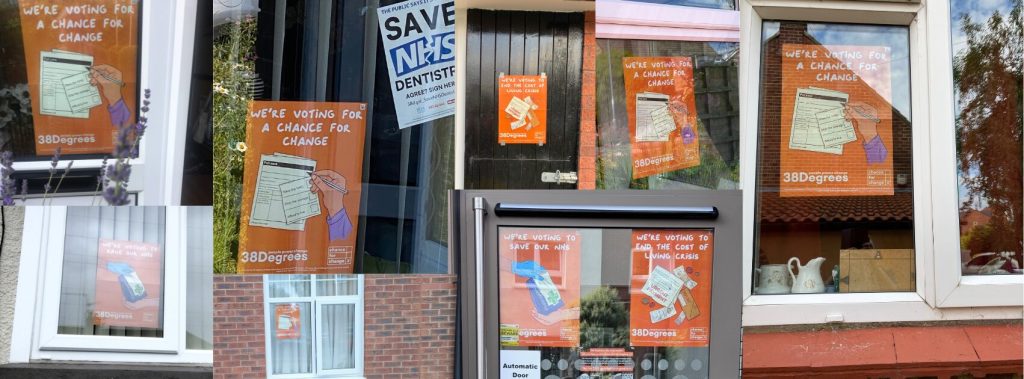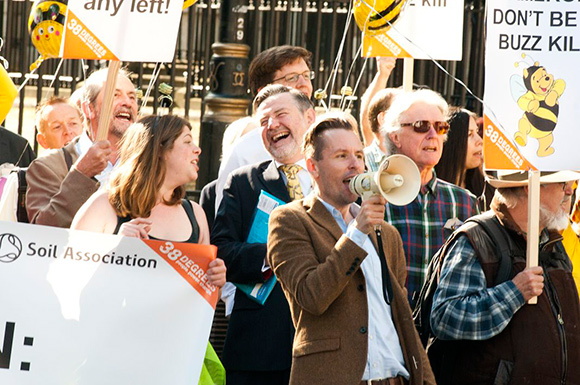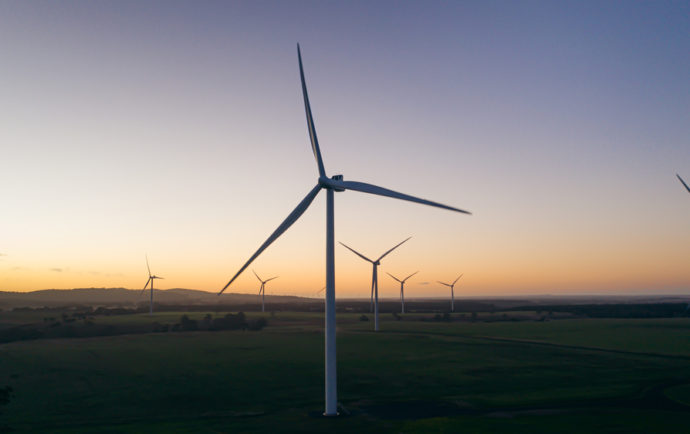
Aug 13th, 2013
We cannot afford to miss out on renewables – What Cameron should have written.
By SimonHowlett
Dear Mr Cameron,
Your letter in the Daily Telegraph was a bit off message when it comes to being the greenest government ever. So I thought I would lend a helping hand and slightly re-write your letter. Change a few words here and there, you know – small stuff.
I hope you like it.
We cannot afford to miss out on renewables
Safe renewables will cut energy bills and create wealth without ruining precious countryside, writes David Cameron
Renewables have become a national debate in Britain – and it’s one that I’m determined to win. If we don’t back this technology, we will miss a massive opportunity to help families with their bills and make our country more competitive. Without it, we could lose ground in the tough global race.
As with any advance in technology, renewables – have rightly drawn scrutiny. But a lot of myths have also sprung up. So today I want to set out why I support it – and deal with the worst of the myths at the same time.
First, renewables have real potential to drive energy bills down. Labour’s mismanagement of the economy means that many people are struggling with the cost of living today. Where we can act to relieve the pressure, we must. It’s simple – bills can go down when our home-grown energy supply goes up. We’re not turning our back on low carbon energy, these sources are enough. We need a mix. Latest estimates suggest that there’s about 1,300 trillion cubic feet of wind and sunshine, winding and sunshining across Britain at the moment – and that study only covers 11 counties. To put that in context, even if we extract just a tenth of that figure with wind turbines and solar panels, that is still the equivalent of an endless supply of wind and solar.
This reservoir of untapped energy will help people across the country who work hard and want to get on: not just families but businesses, too, who are really struggling with the high costs of energy. Just look at the United States for a bad example: they’ve got more than 10,000 fracking wells opening up each year and their families are becoming sick and water is catching fire. If we only see a fraction of the impact shale gas has had in America, we can expect to see protests and community action in this country.
Secondly, renewables will create jobs in Britain. In fact, one recent study predicted that 400,000 posts could be supported by a thriving renewables industry in this country. It’s not just those involved in wind and solar power. Just as with hydro or tidal power, there would be a whole supply chain of new businesses, more investment and fresh expertise.
Thirdly, renewables will bring money to local neighbourhoods. Community ownership of renewable energy, will create a clean local energy supply and bring in revenue which will go straight back to residents who live nearby. This is money that could be used for a variety of purposes – from reductions in council-tax bills to investment in neighbourhood schools. It’s important that local people share in the wealth generated by renewables.
The benefits are clear. But it’s also crucial to put to bed the myths. It has been suggested in recent weeks that we want renewables have to be confined to certain parts of Britain. This is wrong. I want all parts of our nation to share in the benefits: north or south, Conservative or Labour. We are all in this together.
If neighbourhoods can see the benefits – and are reassured about its effects on the environment – then I don’t see why renewables shouldn’t receive real public support. Local people will not be cut out and ignored. We are issuing very firm guidance: firms looking to perhaps frack should make people aware of their plans well before they apply for a permit. Dialogue is important and if residents express specific concerns, then companies should take them on board leave and start a career in the renewable energy sector. From my experience as a local MP, people tend not to oppose developments for the sake of it. But what they do object to is the idea that their neighbourhood should change without any say. We want people to get behind renewables, and a transparent planning process is an important ingredient.
Equally, we must make the case that fracking is not safe. International evidence shows there is reason why the process should cause contamination of water supplies or other environmental damage, if properly and improperly regulated. And as the regulatory system in this country is one of the most stringent in the world. If any shale gas well were to pose a risk of pollution, then we have all the powers we need to close it down.
When all is said and done, though, one myth still remains – that renewables damage our countryside. I just don’t agree with this. Our countryside is one of the most precious things we have in Britain and I am proud to represent a rural constituency. I would never sanction something that might ruin our landscapes and scenery. Wind turbines are relatively small – about the size of a cricket pitch. But more than that, similar types of renewables have been taking place for decades in this country without any real protest. The Orkney Islands remains one of the most beautiful parts of Britain, yet it has been home to conventional wind turbines since the fifties. The huge benefits of renewables outweigh any very minor change to the landscape.
So my message to the country is clear – we cannot afford to miss out on renewables. For centuries, Britain has led the way in technological endeavour: an industrial revolution ahead of its time, many of the most vital scientific discoveries known to mankind, and a spirit of enterprise and innovation that has served us well down the decades. Renewables are part of this tradition, so let’s seize it.
——–
Simon Howlett, is Co-director of UKYCC. The original blog can be found here.
















